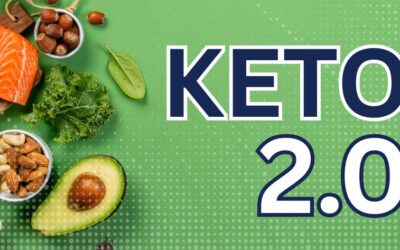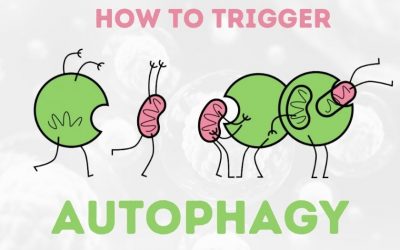This is part 2 of a 3-part series on the top Keto Diet Questions I receive from clients like you!
#1. Can you still get the benefits of a Keto diet if you’re following the 80/20 rule?
(Meaning, you follow Keto 80% of the time, then 20% of the time you’re ‘living a little’ so to speak. Having a glass of wine, having some ice cream or cake, having some pizza, etc. And let’s say this person is fine w/ taking exogenous ketones to stay in ketosis and doesn’t mind the potential weight gain that might come from eating these “cheat” foods.)
I understand where you are coming from, but the neat thing is once you “feel” the ketones, you won’t want to go back! But to answer the question more specifically, you can cheat and get back into ketosis quickly with the Keto Shake (exogenous ketones). Without the supplement, it can take anywhere from 2 days to 4 weeks to get back into ketosis, depending on your level of insulin resistance.
There was a study that had athletes do the Keto Diet 5 days a week and “carb up” on the weekends vs a group that just did the Keto diet plan. The group that stayed in ketosis with a ketogenic diet out-performed the other group, and the Carb-up group was actually out of ketosis I believe through Wednesday each week. So they really only experienced ketosis 2 days a week. This was without exogenous ketones and these were Keto-adapted athletes. Needless to say, for the insulin resistant person, a cheat day would kick them out of ketosis for a lot longer. So in conclusion, it really depends on your state of health and how insulin resistant you are. If you have been in ketosis for over 6 months versus someone who just started, the “cheat” will affect you very differently. And if you do cheat, expect to feel like you have a hangover the next day. You don’t realize how badly you feel living on carbs until you are off of them and then introduce them back. So, it isn’t like you are feeling worse then you previously were feeling living on a carb dominant diet, but it is in stark contrast to the feeling on a keto fueled diet. Inflammation comes back, mental brain fog, etc. It isn’t worse than before but it feels worse because you have had a taste of feeling so good.
#2. How do you determine what a good daily carb intake would be based on your goals, current weight, etc?
I recommend starting with 20 grams or less in the beginning. Get your body “keto-adapted” and then play around with it. It is individual depending on age, insulin resistance and hormones. Most people want to lose weight but there may be those individuals who are athletes, or naturally thin, who don’t want to lose weight. That doesn’t mean you eat carbs. You eat the appropriate amount of protein for your goal—no more than 20 grams at a time because it is really hard on your kidneys. And you fill in the caloric intake with healthy fats and green veggies. If you are a Type II diabetic, you may need to bring your carbs even lower than 20. If you are an athlete, you can get away with maybe 50 grams a day. But even for the male athlete that wants to gain muscle weight, you can do it by adding healthy protein/fat calories and not carbs. My son is doing that right now, as he is trying to put muscle weight on.
The beauty of Keto is it helps the body maintain muscle mass while a high carb diet actually breaks down muscle and uses a lot of calories and energy to rebuild that muscle back up. (Two steps forward and one step back.) With a Keto Diet, you are just moving forward.
#3. What about any potential harm towards kidneys from an increase in protein intake, could that be an issue for some? What about people who have weakened or compromised kidneys?
Keto is not a high protein diet! It actually is only supposed to be about 15-20 percent protein, 70- 80 percent fat and 5-10 percent carbs. So it is actually the easiest on your kidneys. A high carb diet is harder on the kidneys and causes the kidneys to retain water and sodium. A high protein diet is very hard on the kidneys. But if you are focused on fatty meats, then you are actually eating a lot of fats and not as much protein as you think. Also, the health issues related to the heart actually come from eating high fats with carbs. So, if you are only doing a Keto Diet part-time and with “cheat meals”, you may see a rise in your heart risks. It is the carbs that cause damage to the arteries and metabolic disease and with high protein and high fat and high carbs you will see your health go in the wrong direction.
As I mentioned above, you don’t want to stress your kidneys with more than 20 grams of protein at one time. Many athletes throw down whey protein shakes that actually spike the insulin and they are so easily digestible that it quickly burdens the kidneys. We are balancing that out for my son right now. (Read his Keto Diet story here.) He is on a Keto Diet Plan and wants to gain weight but not have too much protein. He could easily eat 20 ounces of steak if I put it in front of him. So we have to get creative with the amount of protein and adding in the anti-inflammatory oils and fats.
#4. Can too much protein be a hindrance to ketosis?
What they have found is that if you are keto adapted and eat more protein, you can stay in ketosis. Many people doing the carnivore diet have tested this and they are eating straight animal protein. But if you are eating a high carb diet, more protein raises your insulin significantly. So it depends on if you are a carb burner or fat burner and what is your level of insulin resistance. Dr. Ben Bikman has done an amazing study about this specifically. The study showed that if you are on the Standard American High carb diet, then eating protein with raise your blood sugar and insulin dramatically, but if you are on a low carb diet, eating protein doesn’t affect your blood sugar and insulin.
Sara Banta
Sara Banta is a Stanford University Graduate with a Degree in Economics and Psychology, and a certified Natural Supplement Expert & Graduate of the Institute for Integrative Nutrition. Sara is the Founder of Accelerated Health Products and host of the health & wellness podcast, Accelerated Health Radio.








